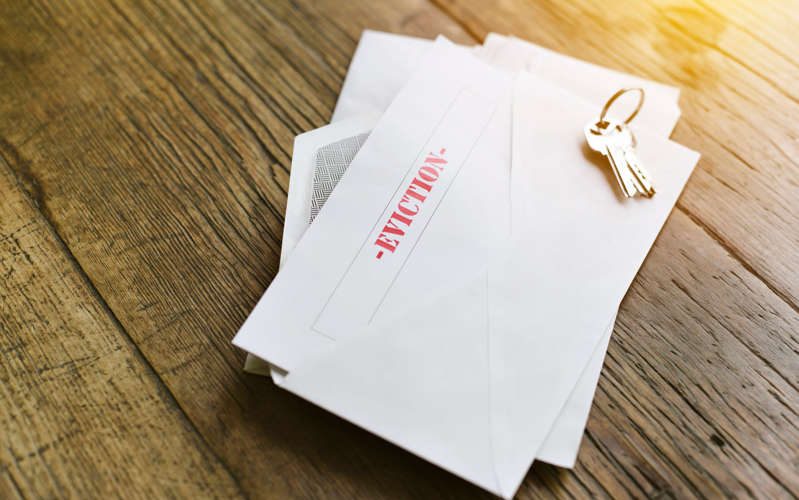The coronavirus pandemic has driven millions of Americans into unemployment, and that’s caused a lot of people to fall behind on their rent. To avoid a massive wave of evictions and prevent countless Americans from being out on the streets, the CDC put an eviction ban into place last year that, after several extensions, finally ran out on July 31.
The news wasn’t all positive for landlords, though. Just days after that happened, a new ban was put into place barring evictions through early October. And while the new ban is more limited in its scope, it still, as of now, offers protection to the overwhelming majority of U.S. renters.
Meanwhile, landlords are owed an estimated $57 billion in unpaid rent in the course of the pandemic, reports the National Apartment Association (NAA). And now they want the government to pay.
Going after what’s theirs
In late July, the NAA filed a lawsuit against the U.S. government to recover the money landlords were denied during the pandemic. It’s estimated that real estate investors who own apartments are now responsible for $27 billion of debt that’s not covered by federal rental assistance programs, and landlords don’t want to be left in the hole.
In fact, landlord advocates have been arguing since last year that the eviction ban has put landlords — especially mom and pop landlords — in a very precarious financial position. While landlords, like regular homeowners, have had the option to place their mortgages into forbearance and pause payments on them without being reported as delinquent, mortgage payments represent just one expense associated with owning property. There’s also insurance, property taxes, maintenance, and repairs that landlords have been responsible for all this time. And so over the past year, a lot of landlords have seen their own financial situation deteriorate due to the ban that was put into place.
In fact, among landlords owning between one and five single-family rental properties, 11% have sold off at least one property due to the eviction ban. Worse yet, 12% have sold off their entire portfolio of properties and have been driven out of business completely.
Now, the good news is that there is a $45 billion pool of federal rent relief funds that should, in time, make its way into landlords’ pockets. But the process of giving that money out has been slow.
Why the holdup? Rather than disperse that aid at the federal level, states were given their share of the pot and were instructed to set up their own programs and application processes. And in many states, the ride hasn’t been smooth.
Delays in getting application portals up and running has made it so the bulk of that $45B pool still hasn’t reached the landlords who are due that money. And so it’s not surprising that landlords are taking legal action after more than a year of being denied the money they need to get by.
While it’s easy to sympathize with tenants who lost their jobs during the pandemic and couldn’t pay rent, the reality is that landlords have been struggling, too. At this point, rent relief funds should start hitting landlords’ bank accounts, but that may not be enough to help property owners recover from the events of the past year and change. And it won’t be shocking if, in the coming months, more landlords decide they’ve had it with owning rental properties.
Unfair Advantages: How Real Estate Became a Billionaire Factory
You probably know that real estate has long been the playground for the rich and well connected, and that according to recently published data it’s also been the best performing investment in modern history. And with a set of unfair advantages that are completely unheard of with other investments, it’s no surprise why.
But those barriers have come crashing down – and now it’s possible to build REAL wealth through real estate at a fraction of what it used to cost, meaning the unfair advantages are now available to individuals like you.
To get started, we’ve assembled a comprehensive guide that outlines everything you need to know about investing in real estate – and have made it available for FREE today. Simply click here to learn more and access your complimentary copy.
Source: Millionacres










